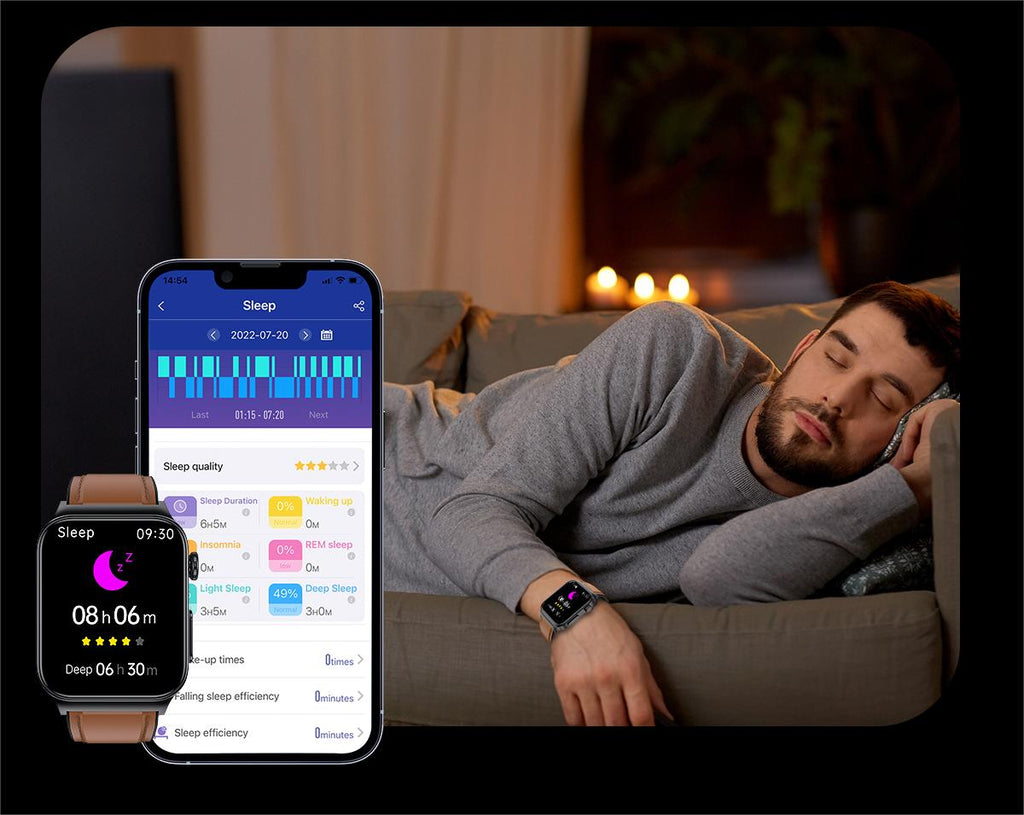Square Smart Watches
In the intricate dance of maintaining health, the relationship between blood glucose levels and sleep quality is a crucial yet often overlooked element. The intricate interplay between these two factors can significantly influence overall well-being, especially for those grappling with diabetes. In this exploration, we uncover the ways in which blood glucose levels and sleep share a symbiotic relationship, each affecting the other in a dance that plays out night after night.
The Nightly Balancing Act: Blood Glucose and Sleep Harmony
-
Glucose Regulation During Sleep: As the body descends into the various stages of sleep, a subtle ballet of hormonal regulation takes place. One of the key players in this nocturnal performance is insulin. During deep sleep, the body becomes more sensitive to insulin, facilitating the efficient uptake of glucose by cells. This process is vital for maintaining balanced blood glucose levels throughout the night.
-
The Dawn Phenomenon: The dawn phenomenon refers to the natural surge in hormones that occurs in the early morning hours, preparing the body to wake. For individuals with diabetes, this phenomenon can lead to an increase in blood glucose levels. The delicate balance between these hormonal shifts and maintaining uninterrupted sleep is crucial for overall sleep quality.
The Impact of Blood Glucose on Sleep Quality:
-
Hyperglycemia and Sleep Disturbances: Elevated blood glucose levels, known as hyperglycemia, can contribute to sleep disturbances. The body may respond to high glucose levels with increased urination, leading to disruptions in sleep patterns. Frequent awakenings during the night can result in fragmented and less restorative sleep.
-
Hypoglycemia and Night Sweats: On the flip side, low blood glucose levels (hypoglycemia) can trigger the release of stress hormones, causing night sweats and potentially waking individuals from their sleep. Maintaining stable blood glucose levels becomes a delicate balancing act to avoid these nocturnal disruptions.
Strategies for Balancing Blood Glucose and Improving Sleep:
-
Regular Blood Glucose Monitoring: Consistent monitoring of blood glucose levels, especially before bedtime, allows individuals to make informed decisions about potential adjustments to their diabetes management routine.
-
Balanced Evening Snacks: Choosing a balanced snack before bedtime, such as a combination of protein and complex carbohydrates, can help stabilize blood glucose levels throughout the night.
-
Timely Medication Management: Adhering to prescribed medication schedules, including insulin injections or oral medications, is crucial for maintaining blood glucose stability during sleep.
-
Moderate Evening Exercise: Engaging in moderate exercise in the evening can assist in regulating blood glucose levels. However, intense workouts close to bedtime should be avoided to prevent potential disruptions in sleep.
Conclusion: Nurturing a Harmonious Balance for Optimal Health
Recognizing the intricate connection between blood glucose levels and sleep quality unveils new dimensions in diabetes management. It emphasizes the need for a holistic approach that encompasses not only medication and dietary choices but also mindful attention to sleep hygiene. As individuals navigate the delicate equilibrium between blood glucose and sleep, they unlock the potential for improved overall health, vitality, and better diabetes management.
To help you better discover their symbiotic relationship, set your sights on the BP Doctor ECG E5, which combines both sleep monitoring and blood glucose monitoring.













